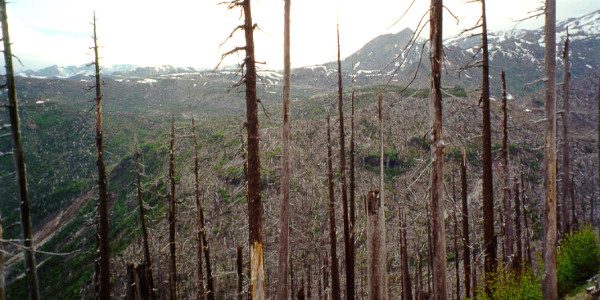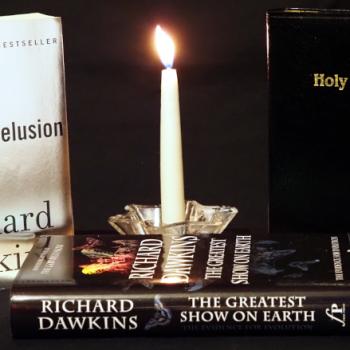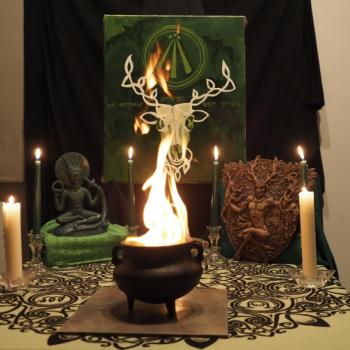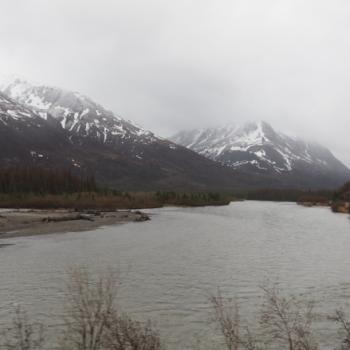“Magic is the Science and Art of causing Change to occur in conformity with Will” – Aleister Crowley
Why do we simultaneously worship change and fight change?
We don’t know what change will bring and the unknown is always scary. That’s the secret modern horror films (gore fests, torture porn) has forgotten. The horror we can’t see is always worse than the horror we can. We have vivid imaginations and reality is almost never as bad as what we think it might be.
Our brains and our emotions evolved in a world that changed so slowly it was barely noticeable. Now the volume and the pace of change are nearly unmanageable. Technology can be helpful, if you can keep up with it – and if you can afford it.
Change we seek out is one thing, but change is often imposed on us. The biggest change agent of all is Nature, who gives us both dramatic change with tornadoes and wildfires and also the slow inevitable change of aging. Employers can change our pay and working conditions arbitrarily and unilaterally. Governments can pass restrictive laws. We have no choice in these changes, even those where common sense ethics say we should.

Change upsets our plans and our investments. And here I mean investments at the most basic level: doing something today in anticipation that things will be better in the future. You invest years and tens of thousands of dollars in a college education and jobs in your chosen field dry up. You buy a house in a quiet neighborhood and then someone wants to build a strip mall across the street. Or you rent a house near your job and after many years the landlord suddenly jacks up the rent because people who make more money than you decide they want to live there.
Change creates winners and losers. With recent political and economic changes, we’ve seen who the winners usually are, and it’s not us. The ever-shrinking middle class demonizes immigrants and the poor while the rich and powerful get even richer and more powerful. (I know it’s not that simple, but it is a mostly accurate generalization.)
“There’s a place called Middle-Earth, or the Hogwarts School of Wizardry, or what have you… All of a sudden this place is threatened by an evil being named Sauron, or Voldemort, or—well, you can fill in the blanks for yourself… he’s evilly evil out of sheer evil evilness, without any motive other than the one just named.
What that evilness amounts to in practice, though, is that he wants to change things. Of course the change is inevitably portrayed in the worst possible light, but what it usually comes down to is that the people who currently run things will lose their positions of power, and will be replaced by the bad guy and his minions.” – John Michael Greer, “The War Against Change”
So what are those of us who simultaneously cry for change and rant against change to do?
Expect change. If you live in Texas you expect hot summers. You don’t have to like them but you know they’re coming. It’s the same with Minnesota winters. The process of change is active, on-going, and increasing in speed and intensity. Emotionally, prepare yourself for change. You may not know what’s coming, but you know something is coming. Strategically, stay flexible. The less you can tie yourself up with sunk costs and long-term commitments, the better.
Yes, this is exactly the opposite of the religious approach I advocate. If you want to develop religious depth, you have to pick something and commit yourself to it. But you are unlikely to have religious change imposed on you. And at some level, we all need a bedrock – something we can count on to always be there for us. I’ll put my unwavering trust in the Gods, ancestors, and spirits long before I’ll put it in real estate, much less in politics and economics.
Adapt to change. Sometimes change is helpful. Sometimes it’s neither good nor bad, it’s just different. Even when it’s Katrina-in-New-Orleans bad, it’s often inevitable – fighting it is a waste of time and resources. Evacuate. Find a new job. Move to a different part of the country. Plan a funeral. Cut your losses and move on.
I think the window to prevent climate change has closed. It’s started and we don’t know how bad it will get. Collectively, we still have the opportunity to make things less worse or more worse, and we have the opportunity to lessen its effects among vulnerable people and other species. I’m not optimistic – those with the resources to do so don’t want to make the sacrifice, and those who will be most affected don’t have the resources to mitigate the effects.
But as we’ve shown throughout our history, humans are extremely adaptable creatures, both as individuals and as a species. We’ve survived ice ages, plagues, droughts, and more, and we will survive this… whatever “this” turns out to be.
“She changes everything She touches, and everything She touches changes” – Starhawk
Create change. No one starts worshiping different Gods because they’re satisfied with the way things are. No one takes up the demanding practice of magic because they think their life is grand just the way it is. Whatever spot in the Big Tent of Paganism is your home, you’re here because you see the need for change. It’s going to happen – why not create it the way you want it created? And if you can’t create exactly what you want, create a first step in that direction. Maybe you can’t change the world, but you can change yourself. Do it well enough and others will follow your example.
Natural change is inevitable and uncontrollable. Human change is just as inevitable, but its form is shaped by the values and priorities of those who create it. Which values and priorities will that be?
The ones that value some races and classes over others? The ones that value order over justice? The ones that value property over lives? The ones that value conformity over freedom?
Or the values and priorities that say Nature has inherent value and worth and is therefore due our reverent care? The ones that recognize individual choices are rightly made by the individuals who are affected by them and not by employers or governments?  The ones that recognize that educating our young and caring for our old is as much a common responsibility now as it was when we lived as hunter-gatherers?
The ones that recognize that educating our young and caring for our old is as much a common responsibility now as it was when we lived as hunter-gatherers?
19th century ceremonial magician Eliphas Levi said “the will of a just man is the Will of God Himself and the Law of Nature.” What is your Will? Not your wants, not your whims, but your True Will? What values does your Will reflect? What changes will you create in accordance with your Will?
May we have the strength and courage to live our True Will both when we create change and when we respond to the changes that are thrust upon us.













